Makoto Kurosaki
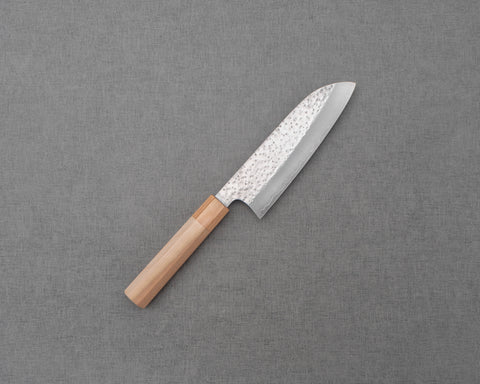
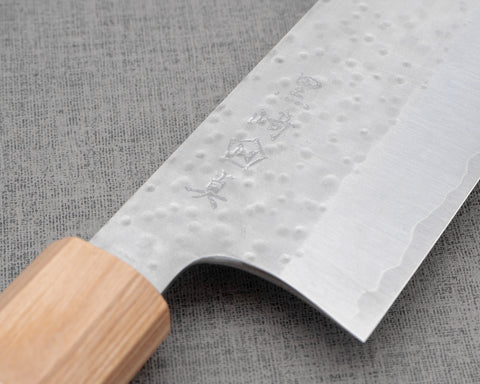
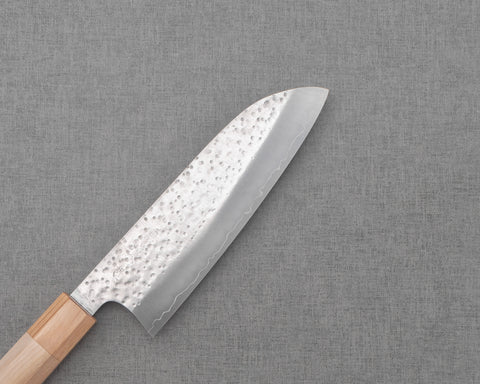
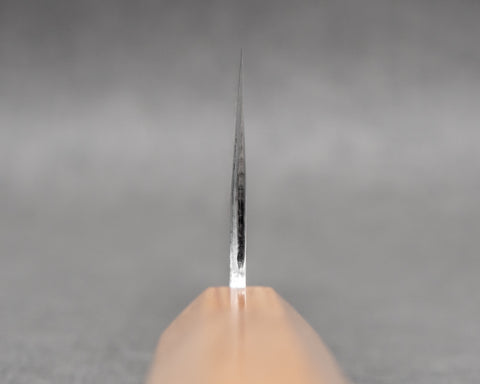
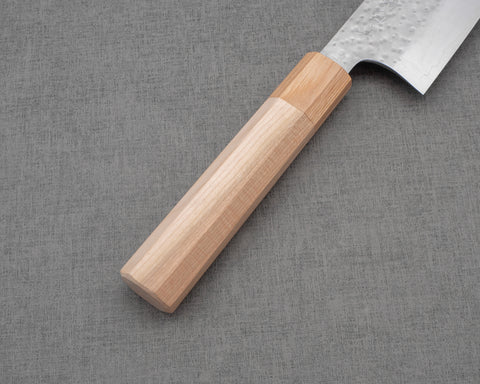
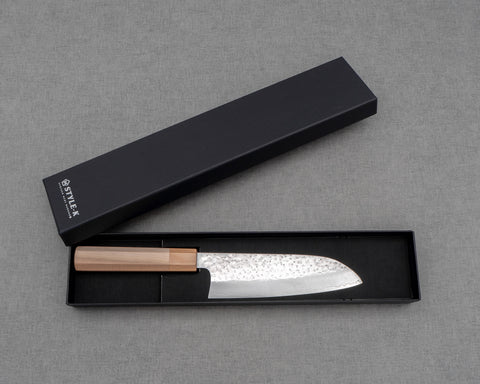
Makoto Kurosaki "Sakura" R2/SG2 Tsuchime 165mm Santoku
目前沒有提供取貨服務
This 165mm Santoku from Makoto Kurosaki shares similar grinding and fit-and-finish qualities as the knives produced by Yu Kurosaki, the maker's younger sibling. This laser-thin knife features a minimalistic design and crater-like Tsuchime pattern, providing a lightweight and precise cutting experience.
Spec:
- Origin (Made in): Echizen, Fukui Prefecture, Japan
- Brand: Makoto Kurosaki
- Craftsman: Makoto Kurosaki
- Knife Type: Santoku
- Blade
- Construction: San Mai
- Grind: Double-edged Blade (50/50 Grind)
- Hagane (Core Steel): R2/SG2
- Jigane (Cladding): Stainless Steel
- Hardness: 62-63 HRC
- Hand-forged, hand-grinded, hand-sharpened
- Blade Finishes:
- Signature Tsuchime (Hammered)
- Blade Length: 165mm (6.5")
- Blade Height (at heel): 48mm
- Spine Thickness
- Above heel: 2.0mm
- Middle: 1.9mm
- Handle
- Shape: Hachikaku (Octagonal)
- Material: Japanese Magnolia (Ho Wood)
- Kuchiwa: Japanese Magnolia (Ho Wood)
- Length: 127mm
- Overall Length: 305mm
- Weight: 125g (4.41oz)
- Laser Mark: In Japanese Kanji "Kurosaki Makoto" (黒崎 真)
About Makoto Kurosaki 黒崎 真
Makoto Kurosaki is a master knife sharpener based in Takefu Knife Village, known for his exceptional ability to create knives with ultra-thin edges, ensuring precision cutting and ease of handling. With expertise in various steels, from stainless to high-carbon, Makoto continuously refines his skills to produce superior blades. He began his journey apprenticing under the legendary Hiroshi Kato and now frequently sharpens knives crafted by renowned makers such as Yoshimi Kato, Takumi Ikeda, and his brother, Yu Kurosaki..
Care:
Wash and dry with a soft sponge, and safely store after use. Avoid cutting into bones, frozen foods, hard fruit pits.
Cutting Surface:
Recommended cutting surface: wood, rubberized boards and high-end composites, and quality plastics such as polyethylene make acceptable cutting surfaces, and will help protect and prolong knife’s edge. AVOID glass, metal, countertops, and other rigid, non-forgiving surfaces.
Sharpening:
We recommend sharpening all quality Japanese knives on whetstones, as we believe they yield the best results for your knives.
